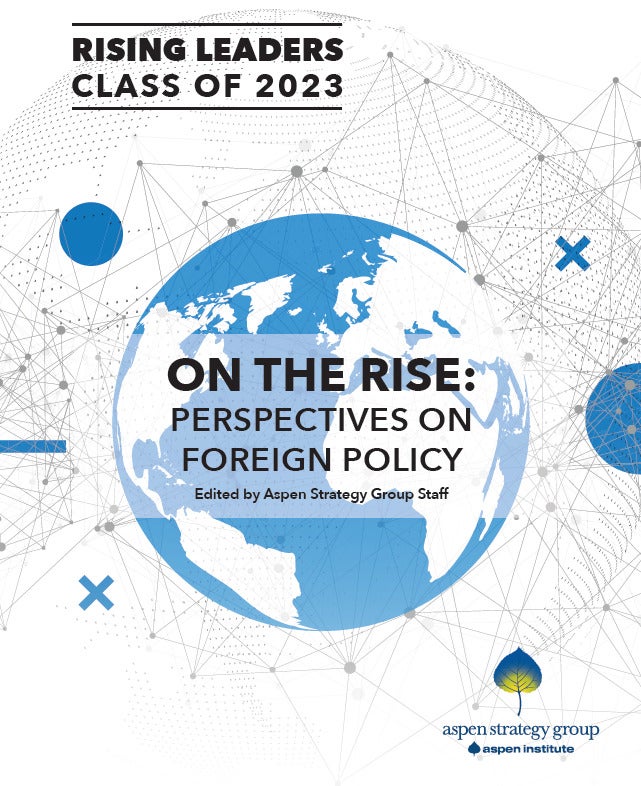In the last six months of 2017, more than 600,000 people, over half of the Rohingya population of Rakhine state, an area in Western Burma (the nation also called Myanmar), have become refugees on the Bangladeshi side of its border with its neighbor. Thousands more are internally displaced. While access to the affected region is difficult and sometimes dangerous, reports of rape by Burmese soldiers, often orchestrated, have been reported by humanitarian organizations and major news outlets. Mass killings have also been reported by witnesses and survivors.
The scope and magnitude of the crisis was described in a briefing conducted by the Justice & Society Program in Washington, DC on December 11. Dr. Azeem Ibrahim, Senior Fellow at the Centre for Global Policy and author of “The Rohingyas: Inside Myanmar’s Hidden Genocide,” recently returned from visiting the refugee camps; Andrea Gittleman, Program Manager at the Center for the Prevention of Genocide at the US Holocaust Memorial Museum; and Mark Storella, a career diplomat and current Deputy Assistant Secretary of the Bureau of Population, Refugees, and Migration at the US State Department, helping spearhead US efforts to provide humanitarian assistance and find solutions to the current crisis, also provided their perspectives.
The Rohingya have been described as the “most persecuted” and “least wanted” people on earth. As stateless persons not recognized as citizens by the Burmese government, the Rohingya have been systematically oppressed, with bouts of increased violence and military crackdowns in 1978, 1991-2, 2012, and as recently as 2015. When violence broke out in August 2017, many in the US were caught unaware. Ethnic cleansing in the Rakhine state, as some UN officials have described, seemingly came out of nowhere. However, a deeper understanding of the politicization of religious differences in Myanmar explains why the rejection of religious pluralism by the ruling Buddhist majority was so dangerous.
The Rohingya are an ethnic group made up largely of Muslim people, although a few are Hindu, who live in the Rakhine region of western Myanmar, a majority Buddhist country. Despite a lengthy history in the region, the Myanmar government considers them illegal refugees from neighboring Bangladesh, because there was migration around the current border when both areas were under British colonial rule. Absent official status, the Rohingya suffer under conditions some compare to apartheid, with restrictions on marriage, family planning, employment, education, movement and more. They are extremely destitute, with over 78 percent living in poverty even before the recent crisis according to the World Bank.
The most recent assault against the Rohingya began as a military crackdown after a small group of insurgents carried out an attack on Burmese police posts in August. Many Rohingya were arbitrarily arrested. Government forces and local residents committed extrajudicial killings, looted, and burned entire villages. Particularly disappointing to the international human rights community, who viewed her as an iconic figure, Myanmar’s civilian leader, Nobel Peace Prize winner Aung San Suu Kyi has refused to condemn the violence, and in some statements appears to condone it.
Experts have warned that the Rohingya are at risk of genocide and Myanmar has been near the top of their early warnings at-risk regions for years, according to Gittleman of the Holocaust Museum, but the international community took no action. Dr. Ibrahim agreed, noting that the Buddhist majority has been ghettoizing, “othering,” and persecuting the Rohingya for decades. Said Ibrahim, “These things don’t happen suddenly. It takes time and effort to see someone else as non-human.”
For decades those in power have argued that the Rohingya are not indigenous to the country and have no rights, making it easier for ordinary people to take no action to prevent or even to begin to fabricate justifications for mass atrocities, reminiscent of what occurred in Nazi Germany. The UN special rapporteur on Myanmar and other experts have said that social media has been used to incite fear of and violence against the Rohingya. And this dangerous rhetoric does not just come from government propaganda, statements, or actions; Ibrahim and others have conveyed that Buddhist nationalist rhetoric even comes from some Buddhist monks. Despite the widely-held perception of Buddhism as a peaceful religion, these experts explain that leaders have distorted components for their political intents.
I personally have been surprised to hear the depth of anti-Rohingya prejudice voiced by people associated with the Burmese government. One, interviewed on background, was quite sympathetic to the government and its military response, arguing that some Rohingya were terrorists. Although she stressed the need for international humanitarian aid and to protect civilians, her comments conveyed deep-seated prejudice, such as repeating that the targeted victims are Bangladeshi and disdainfully attributing their poverty to their religion.
Another deeply disturbing aspect of the current crisis is how widespread gender based violence appears to be in Rakhine. Myanmar armed forces have been systematically gang-raping and killing women and children, producing lasting physical and psychological trauma in the surviving victims.
This latest conflict to systematize sexual violence is part of a pattern that has become all too familiar in modern military conflicts targeting civilians. Sexual violence, from rape to trafficking and sex slavery to female genital mutilation is widely used as an intentional tool of war.
Not only is sexual violence an attack on an individual, but it contributes to the destabilization and dehumanization of a population, serving to terrorize communities and create a culture of fear. 25,000 to 50,000 incidences of rape and/or sexual violence occurred during the war in Bosnia between the years 1991 and 1992. In Rwanda, up to 500,000 people were raped and the International Criminal Tribunal handed down the first conviction for the mass use of rape as a weapon of war during the genocide. Joseph Kony and the Lord’s Resistance Army in Congo currently face an International Criminal Court investigation into human rights in part for systematic rape. Yazidi women were systematically targeted by ISIS for their religion and ethnicity and abducted and sold into sex slavery. Activists like Nadia Murad have been raising awareness, speaking around the world and recently writing a memoir about her time in captivity. Humanitarian aid to the Rohingya from UN agencies and the US need to include holistic assistance specifically geared to survivors of sexual violence, from psychological support to reproductive healthcare.
In late November, Myanmar and Bangladesh signed a bilateral agreement for the Rohingya to return to Myanmar from the refugee camps in Bangladesh. But panelists at the December panel cautioned that repatriation of the refugees may not provide a near-term solution to the crisis. As Ambassador Storella, noted, “It is crucial that any repatriation be voluntary, dignified, and safe” and that the US and international community must avoid fatigue in both humanitarian and diplomatic aid until the crisis is resolved for the Rohingya people. Experts, like Ibrahim, suggest repatriation is impractical because the Burmese government currently requires Rohingya to have documentation of residence in Myanmar to return, status the government has denied the Rohingya to receive for decades. Further, until they are granted equal rights and safety, few want to return.
In the United States, the situation of the Rohingya may seem extremely distant; but we should not be complacent. From Bosnia to Rwanda to Darfur the warning signs of ethnic cleansing, in the recent past targeting Muslims or people of color, have existed and we have done little to prevent it. Religion here has rarely been politicized in the way it has been in so many places. But with a president who has tacitly condoned the kind of hate speech that in a society less open and inclusive than the US has led to adverse consequences and the increase in the number of hate crimes, the “otherizing” that is a first step to disaster is increasingly obvious. The plight of the Rohingya should serve not only as a call for action and moral leadership in the region, but also as a reminder that the erosion of religious pluralism and diversity is a risk to the social fabric of every nation.
Top photo: Tasnim News Agency/Wikimedia Commons

